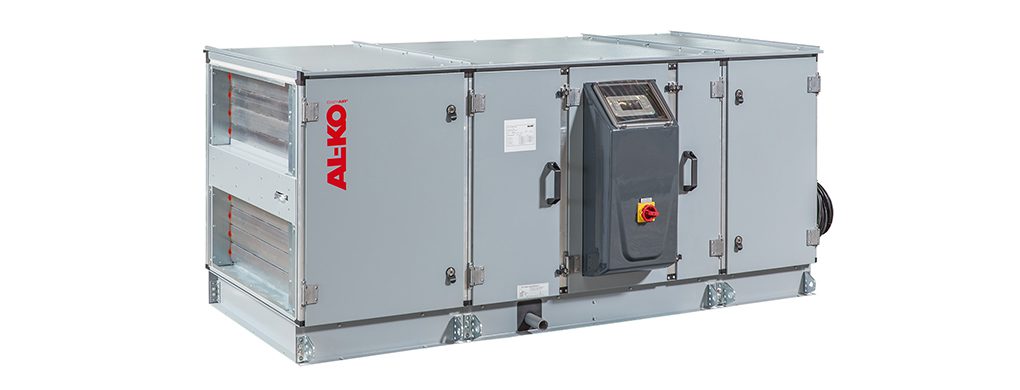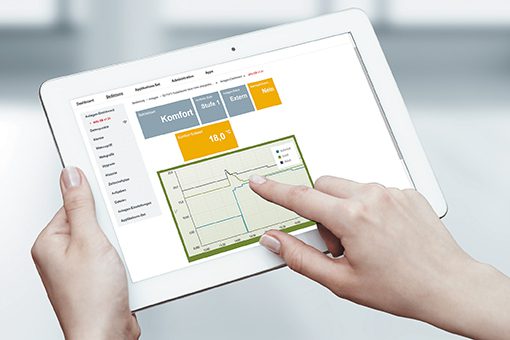
Breathing easy in practices and stores
Fresh and healthy air is gaining importance where many people come together: in medical practices and health centers, retirement homes, event rooms and sales outlets. The AL-KO EASYAIR compact ventilation unit ensures a good climate in these rooms. The unit is designed for air volumes of 650 to 13,000 m3/h and is installed centrally. Due to its compact dimensions, it has a small space requirement. It is available for both indoor and outdoor installation and complies with the requirements of the Passive House Directive.
AL-KO EASYAIR is very easy to install and commission. Integrated wiring with factory-tested sensor technology enables quick installation, while the pre-configured control system and plug-and-play technology speed up commissioning. Even in confined spaces, the divisibility of the system allows easy delivery to the building.

EASYAIR flat: Ideal for ceiling mounting
AL-KO Air Technology provides a particularly flat form of the EASYAIR with the EASYAIR flat. With heights of up to a maximum of 464 millimeters, the device is suitable for ceiling mounting and enables quick, tool-free installation using click connections. It is suitable for air volumes between 600 and 3,800 m3/h.

High heat recovery, efficient remote maintenance
Both versions of the EASYAIR are equipped with virtually maintenance-free counterflow plate heat exchangers, which ensure recovery of up to 90 percent of the heat. And both are compatible with AL-KO REMOTE CONTROL. The web-based servicing system, which can be operated using any internet-enabled terminal device, offers users a great savings potential, because in addition to pure operation, many maintenance and service tasks can also be performed conveniently and intuitively via remote access. Long trips by service personnel are no longer necessary: This saves time, costs and resources.
In addition, it is possible to use AL-KO REMOTE CONTROL already during the commissioning of a new device and to receive support and guidance from AL-KO experts. The service system continuously records and stores the plant data and thus provides an overview of the operation, facilitates error analysis and helps in decision-making processes. In this way, the data also provides the basis for continuously improving plant efficiency and thus saving energy.
